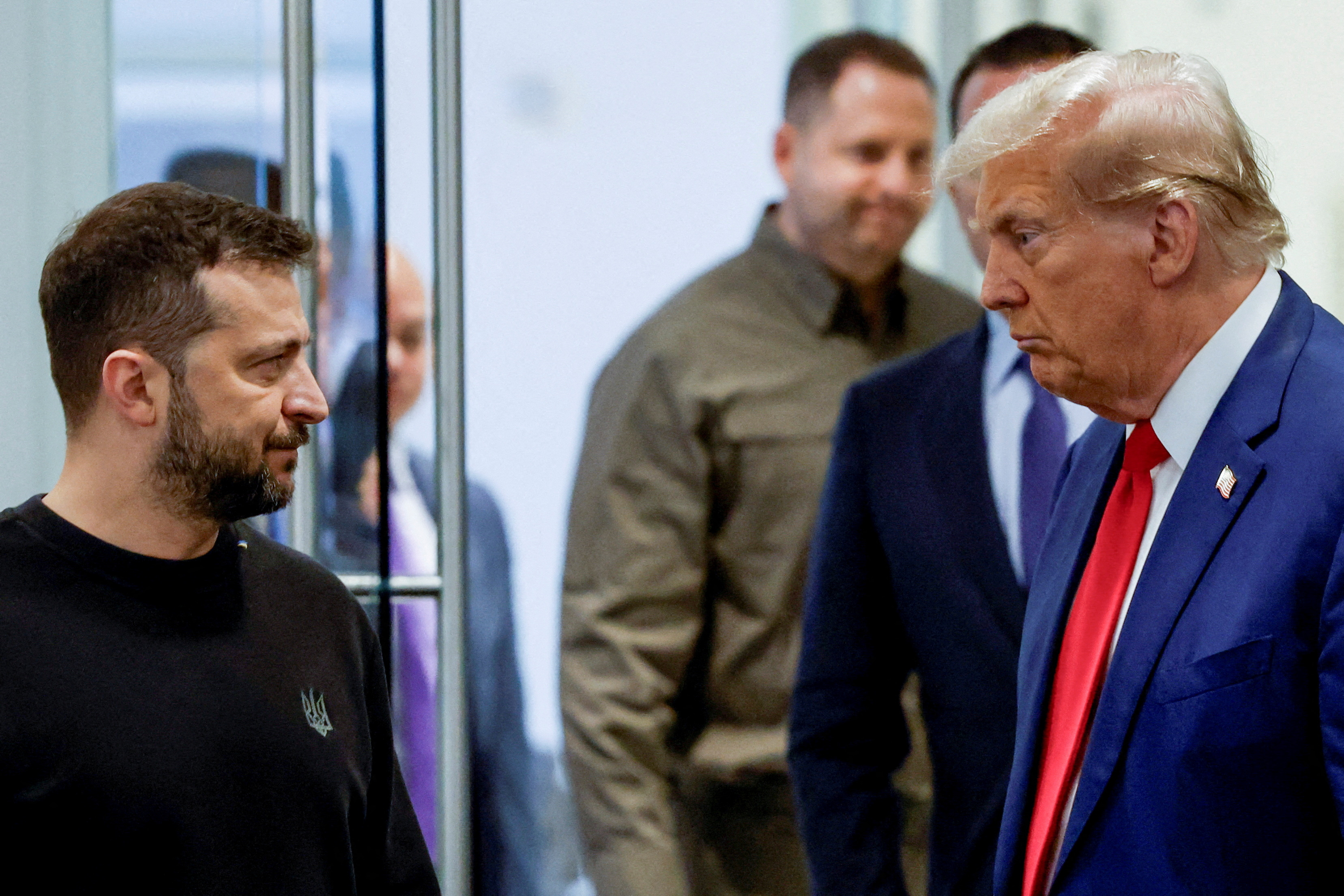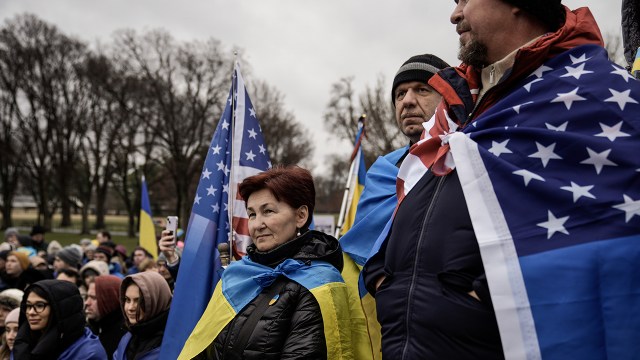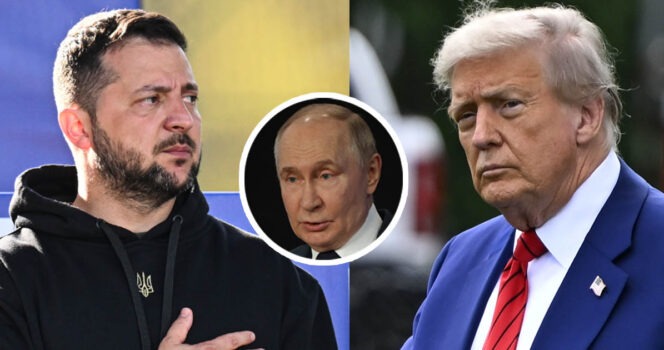Former U.S. President Donald Trump’s evolving stance on the ongoing conflict between Russia and Ukraine has once again come under scrutiny following recent media reports and public statements. While Trump has historically voiced skepticism about extensive U.S. involvement in foreign wars, recent developments suggest a more assertive posture toward Russia. At the same time, conflicting accounts surrounding a reported conversation with Ukrainian President Volodymyr Zelenskyy have prompted widespread media coverage and political commentary.

Background: U.S. Policy on Ukraine During Trump’s Presidency
During his time in office (2017–2021), Donald Trump expressed mixed views about U.S. assistance to Ukraine. While his administration did approve the sale of lethal military aid—most notably Javelin anti-tank missiles—it also withheld aid in a move that led to Trump’s first impeachment in 2019. The impeachment centered on a July 2019 phone call with President Zelenskyy, during which Trump was accused of pressuring Ukraine to investigate political rival Joe Biden.
Since leaving office, Trump has continued to express skepticism about U.S. foreign aid, including funding for Ukraine amid the Russian invasion that began in February 2022. He has often prioritized what he calls an “America First” approach, suggesting that the U.S. should avoid prolonged international entanglements unless directly related to national interest.
Reports of Alleged Private Comments to President Zelenskyy
In July 2025, The Financial Times and The Washington Post both published reports citing anonymous sources familiar with a phone call between Donald Trump and President Volodymyr Zelenskyy. According to the sources, Trump allegedly asked Zelenskyy whether Ukraine could strike strategic Russian targets, including Moscow and St. Petersburg, if the United States supplied long-range weapons.
The report further claimed that Trump had spoken with Russian President Vladimir Putin shortly before his conversation with Zelenskyy and described the exchange with Putin as negative or “bad.” The alleged inquiry to Zelenskyy—“Can you hit Moscow? Can you hit St. Petersburg too?”—was interpreted by the sources as part of a strategy to apply pressure on Russia to negotiate by escalating Ukraine’s military capabilities.
It is essential to note that these claims have not been confirmed by any official government channels. Both The Financial Times and The Washington Post cited unnamed individuals familiar with the matter, and no recordings or transcripts have been released to corroborate the conversation.

Trump’s Public Denial of the Report
Following the widespread circulation of the media reports, Donald Trump publicly denied the allegations. On July 15, 2025, he stated that he does not support Ukraine targeting Russian cities such as Moscow with long-range missiles. According to multiple news outlets, Trump clarified his position by saying: “No, he should not target Moscow,” referring to President Zelenskyy.
This public statement stands in contrast to the private conversation alleged in the Financial Times and Washington Post articles. The conflicting accounts have added complexity to discussions around Trump’s current and future foreign policy stance—particularly as the United States prepares for the 2024 presidential election cycle.

Shift in Trump’s Rhetoric Toward Russia
Despite his denial regarding the alleged remarks, Trump’s recent public statements have indicated a firmer stance on Russia’s invasion of Ukraine than previously observed. Speaking at a press event on July 13, 2025, Trump criticized Russian President Vladimir Putin for failing to agree to a ceasefire and threatened to impose significant tariffs.
He proposed what he called “secondary tariffs” of up to 100% on countries continuing to trade with Russia if a ceasefire agreement is not reached within 50 days. These tariffs would apply to Russia’s trade partners and are intended to create economic pressure on the Kremlin.
In addition to the proposed sanctions, Trump announced a plan to provide military equipment to Ukraine through NATO channels. According to Trump, the U.S. would deliver billions of dollars’ worth of weapons—purchased by European countries from American defense manufacturers—to Ukraine via NATO allies. This move represents a notable departure from Trump’s earlier criticisms of military aid to Kyiv.
Ukraine’s Response and Official Positions
The Ukrainian government has not publicly confirmed or denied the reported phone call or the alleged request from Donald Trump. President Zelenskyy has consistently emphasized Ukraine’s need for advanced weaponry to counter Russian aggression, particularly in relation to defending against missile and drone attacks. Ukrainian officials have also reiterated the country’s compliance with international humanitarian law and NATO coordination protocols regarding the use of supplied weapons.
As of mid-July 2025, Ukraine continues to rely on a coalition of Western support, including the United States, the European Union, the United Kingdom, and Canada, for defense assistance. Long-range strike capabilities have remained a subject of ongoing discussion among NATO allies due to the risk of escalation with Russia.

Broader Context: U.S. Involvement in the Russia-Ukraine War
Under the Biden administration, the U.S. has provided more than $75 billion in military and economic aid to Ukraine since 2022, according to the Congressional Research Service. This assistance has included tanks, artillery systems, air defense equipment, and financial support for government operations.
While bipartisan support for aid to Ukraine remains in place, there is growing debate within the U.S. Congress about the long-term sustainability of assistance. Some policymakers have called for more accountability, while others emphasize the strategic necessity of supporting Ukraine as a deterrent to further Russian expansion.
As a prominent figure in the Republican Party, Trump’s views continue to influence public discourse around U.S. foreign policy. His evolving comments on Ukraine and Russia are being closely watched by both domestic and international observers, particularly in the context of his 2024 election campaign.

Conclusion
Donald Trump’s recent statements and reported conversations regarding Ukraine and Russia have reignited discussion around his foreign policy approach and its implications for global security. While his administration previously took a cautious approach to U.S. involvement in international conflicts, his latest proposals—such as economic sanctions and expanded weapons transfers—suggest a possible shift in strategy.
At the same time, conflicting reports about a private conversation with Ukrainian President Zelenskyy, combined with Trump’s public denials, have created ambiguity. As the situation evolves and the U.S. election cycle intensifies, Trump’s position on the Russia-Ukraine conflict will remain a focal point in debates about America’s role on the global stage.
Sources:
-
The Financial Times – Report on alleged Trump-Zelenskyy call
-
The Washington Post – Follow-up coverage and anonymous source accounts
-
CNBC – Trump’s announcement on tariffs and military support
-
Congressional Research Service – U.S. aid to Ukraine (2022–2025)
-
U.S. Department of State – Official policy on support for Ukraine
-
NATO – Coordination on defense assistance to Ukraine
